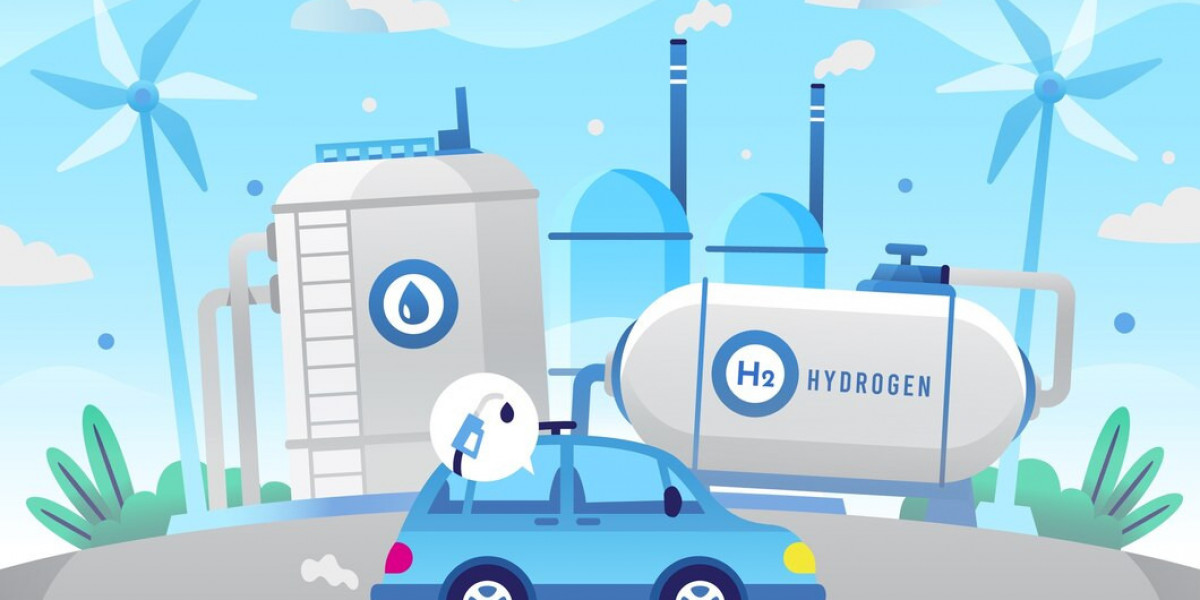Higher education in India is undergoing significant transformation. The demands of modern industries, advancements in technology, and a globalized economy have collectively reshaped the expectations from educational institutions. Universities are no longer just centers for acquiring theoretical knowledge. Today, they are expected to prepare students for a competitive job market by offering a well-rounded education that includes skill development, internships, industry exposure, and a robust placement network.
One institution that stands at the forefront of this evolution is Dev Bhoomi Uttarakhand University (DBUU). Situated in the scenic landscape of Dehradun, DBUU has emerged as a prominent university that consistently focuses on bridging the gap between academia and industry. Through innovative programs, hands-on learning opportunities, strong industry collaborations, and a student-centric approach, the university ensures its graduates are well-prepared for the ever-changing professional landscape.
In this article, we will dive deep into how higher education is evolving in India, focusing particularly on DBUU’s role in shaping a new generation of career-ready professionals.
The Changing Landscape of Higher Education in India
The role of universities in India has expanded beyond just imparting knowledge. In the past, higher education focused heavily on theoretical learning, with little emphasis on practical skills or industry exposure. However, with the rise of technological advancements and a rapidly evolving job market, this approach is no longer sufficient.
Today's employers seek graduates who not only have a strong academic foundation but also possess practical skills, problem-solving abilities, and hands-on experience. As a result, universities are now under pressure to adapt their curricula to align with these new demands. Institutions that fail to keep up risk producing graduates who are underprepared for the real world.
Key factors driving this change include:
Technological Advancements: With the rise of automation, artificial intelligence, and data analytics, industries now require graduates with specialized technical skills. Universities need to offer courses that reflect these trends.
Globalization: The interconnectedness of global economies has increased competition, and students now face competition from candidates not just within their country but from all over the world. This calls for a curriculum that fosters global thinking and cross-cultural understanding.
Industry-Specific Skills: Gone are the days when general education was sufficient for most job roles. Today, employers seek specific skill sets tailored to their industry needs. Universities must now design programs that equip students with these specialized skills.
Job Market Demands: Employers are increasingly looking for candidates who can hit the ground running. Universities are responding by emphasizing internships, live projects, and industry exposure as a way to bridge the gap between education and employment.
Given these trends, universities like Dev Bhoomi Uttarakhand University are stepping up to the challenge by aligning their educational programs with modern-day requirements.
Dev Bhoomi Uttarakhand University: A Model for Modern Education
Dev Bhoomi Uttarakhand University is a leading example of how institutions can evolve to meet the needs of both students and employers. Since its inception, DBUU has focused on providing an education that goes beyond textbooks. The university offers a variety of programs across disciplines, including engineering, management, computer science, health sciences, agriculture, and humanities. Each of these programs is designed with a practical, industry-focused approach that prepares students for immediate entry into the workforce.
Here are some of the ways in which DBUU is leading the charge in modernizing higher education:
Industry-Aligned Curricula: Preparing Students for the Real World
One of the core elements of DBUU's approach is its industry-aligned curricula. The university works closely with industry leaders to develop and constantly update its programs. This ensures that students are not just learning outdated concepts but are equipped with the latest knowledge and skills that are in demand in the job market.
For instance, the School of Engineering at DBUU offers programs in cutting-edge fields such as Artificial Intelligence, Machine Learning, Data Science, and Cybersecurity. These fields are among the fastest-growing industries globally, and DBUU ensures its students are at the forefront of these advancements. Courses are designed not just to cover the theoretical aspects of these subjects but also to provide hands-on training through projects, labs, and industry collaborations.
Additionally, the School of Management at DBUU emphasizes contemporary business practices and entrepreneurial skills. Students are trained in business analytics, digital marketing, and strategic management, making them well-prepared for leadership roles in today’s dynamic corporate world.
In short, DBUU’s curriculum is shaped by the real-world requirements of industries, ensuring that its graduates are job-ready from day one.
Hands-On Learning and Practical Skill Development
Practical learning is at the heart of DBUU’s educational philosophy. In today’s competitive job market, theoretical knowledge alone is not enough. Employers value candidates who can apply what they’ve learned to solve real-world problems. To this end, DBUU has integrated hands-on learning opportunities into every program it offers.
In the engineering and computer science programs, students have access to state-of-the-art labs where they work on live projects, participate in research initiatives, and use industry-standard software and tools. For example, students studying AI and Machine Learning are not just learning about algorithms; they are actually building machine learning models and testing them on real datasets.
Similarly, students in the health sciences programs gain practical experience through clinical rotations and internships at partner hospitals. This hands-on experience is invaluable in preparing them for their future roles in the healthcare industry.
The School of Agriculture at DBUU also places a strong emphasis on practical training. Students engage in fieldwork, work on crop management projects, and learn the latest sustainable farming techniques, ensuring they are ready to contribute to the agricultural sector’s modernization.
Internships and Industry Exposure
One of the most critical aspects of career preparation is industry exposure. At DBUU, internships are a mandatory part of most programs. The university has established strong partnerships with leading companies across various sectors, ensuring that students have ample opportunities to intern with reputable organizations.
These internships go beyond mere observation. Students are encouraged to take on meaningful roles, contribute to projects, and solve real problems. This hands-on experience not only helps students apply their classroom learning but also provides them with valuable insights into their chosen industries.
Moreover, many students at DBUU receive Pre-Placement Offers (PPOs) based on their internship performance. High-performing interns often secure job offers before they even graduate, making the transition from education to employment seamless.
For example, students in the MBA program have interned with top firms like Deloitte, EY, HDFC Bank, and Amazon, among others. These internships allow students to gain real-world business experience, understand market dynamics, and network with professionals in their field.
Robust Placement Support: Bridging Education and Employment
Placement services are a key consideration for students when choosing a university, and DBUU excels in this regard. The university’s Placement Cell is dedicated to helping students secure jobs in their chosen fields. From resume-building workshops to interview preparation and career counseling, the placement cell offers comprehensive support throughout the recruitment process.
DBUU’s strong ties with industry leaders ensure that students have access to a wide range of job opportunities. The university regularly hosts campus recruitment drives where companies from various sectors come to hire graduating students. Some of the top recruiters at DBUU include Tata Consultancy Services (TCS), Infosys, Wipro, Tech Mahindra, Nestle, Cognizant, and L&T.
The success of DBUU’s placement services is reflected in its impressive placement statistics. The majority of students secure job offers even before they graduate, with many receiving multiple offers. Additionally, the average salary packages offered to DBUU graduates are competitive, with students in fields like engineering, management, and computer science securing lucrative positions.
Research and Innovation: Fostering a Culture of Inquiry
DBUU is committed to fostering a culture of research and innovation. The university encourages both students and faculty to engage in research activities that contribute to the advancement of knowledge in their respective fields. This emphasis on research not only enriches the academic environment but also ensures that students are exposed to the latest developments in their disciplines.
Students have the opportunity to work on cutting-edge research projects in fields like artificial intelligence, biotechnology, sustainable agriculture, and renewable energy. DBUU’s research centers are equipped with state-of-the-art facilities, and the university frequently collaborates with industry and government organizations on research initiatives.
Moreover, DBUU hosts annual research conferences where students and faculty present their findings to a wider academic and professional audience. This exposure helps students gain recognition for their work and opens doors to further research opportunities, both in academia and industry.
The Role of Faculty: Guiding Students Toward Success
At DBUU, the faculty plays a crucial role in shaping the student experience. The university boasts a team of highly qualified and experienced professors who are not just educators but also mentors. The faculty at DBUU comes from diverse academic and professional backgrounds, bringing a wealth of knowledge and expertise to the classroom.
One of the hallmarks of DBUU’s faculty is their commitment to student success. Professors take a personalized approach to teaching, ensuring that each student receives the guidance and support they need to excel. Faculty members also encourage students to pursue their passions, whether that’s through academic research, internships, or entrepreneurial ventures.
The university’s emphasis on faculty-student interaction creates an environment where students feel comfortable seeking help, asking questions, and exploring new ideas. This collaborative approach ensures that students not only excel academically but also develop the confidence and skills needed to succeed in their future careers.
Conclusion: Dev Bhoomi Uttarakhand University’s Role in Shaping the Future of Higher Education
As higher education in India continues to evolve, institutions like Dev Bhoomi Uttarakhand University are leading the way in preparing students for the challenges and opportunities of the modern workforce. By offering industry-aligned curricula, emphasizing hands-on learning, and providing robust placement support, DBUU ensures that its graduates are not just academically proficient but also career-ready.
With a strong focus on skill development, internships, and real-world experience, <a href=" https://universitychalo.com/university/dev-bhoomi-uttarakhand-university-dbuu-dehradun">Dev Bhoomi Uttarakhand University</a>
exemplifies the future of higher education in India—an education that is relevant, practical, and geared toward success in a rapidly changing world.
For more guidance on choosing the right university and career path, you can visit <a href="https://universitychalo.com">Universitychalo</a>
, a platform dedicated to helping students navigate their educational journey.









